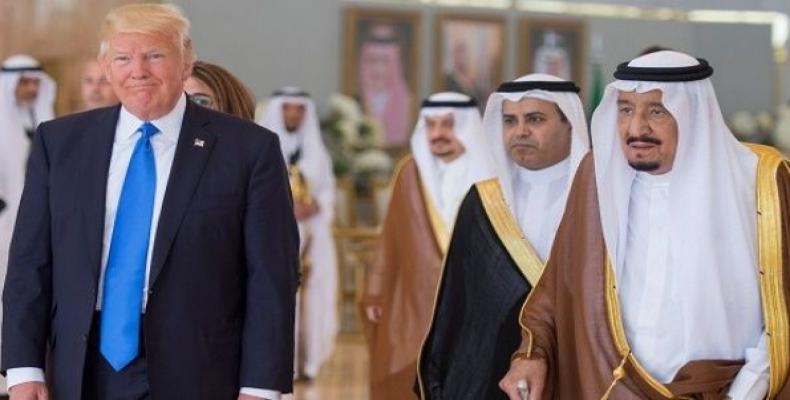New York, July 20 (RHC)-- Facing growing international and domestic pressure, Saudi Crown Prince Mohammed bin Salman's military campaign in Yemen has further pushed Riyadh to plead for Washington's assistance, according to a report.
Despite waging a prolonged four-year war on Yemen, the Saudi-led coalition has failed to achieve its announced objective of installing an allied government and defeating the Houthi Ansarullah movement in the country, The New York Times cited various analysts as saying.
The frustrated Saudis have, however, turned to additional U.S. support in hopes of achieving a breakthrough, according to unnamed diplomats informed on the matter. The U.S. already provides the Saudis with weapons and logistical support. Riyadh is seeking additional intelligence assistance and possibly the deployment of American special forces teams and advisers in Yemen, according to diplomats.
Despite being emboldened by the U.S. President Donald Trump's hawkish administration, Riyadh is, however, disgruntled with Washington's hesitation to provide the additional assistance. “Why haven’t the Americans carried out a single operation to help?” asked Mustafa Alani, a scholar at the Saudi-backed Gulf Research Center who is close to the royal court.
Washington's reluctance comes as the U.S. congress has pushed to limit US assistance in the Saudi military campaign following the gruesome killing of Saudi journalist Jamal Khashoggi in a diplomatic mission in Turkey in October last year.
The U.S. House of Representatives voted to pass resolutions that block certain arms sales to Saudi Arabia and the UAE. Facing an ever-decreasing set of options in Yemen, the Saudis "don’t have the luxury of walking out of Yemen,” believes Farea al-Muslimi, chairman of the Sana'a Center for Strategic Studies, a research institute in the Yemeni capital.
Washington-based AGS Institute analyst Kristin Smith Diwan also believes bin Salman's failure to finish the war, which was largely touted as the young crown prince's "personal investment", hurts his "credibility as a successful leader." She said: “Not many people in Saudi Arabia feel this is a wise investment for the future."
The hastily withdrawal of Saudi Arabia's most prominent ally, the United Arab Emirates, which was made public last past month, has also prompted many experts to further question whether the kingdom's is able to continue the war on its own.
Almost five years after the Saudi-led alliance started the war on Yemen, it has found itself in a quagmire that it cannot win. Known to be more efficient than the Saudis at commanding ground troops, the UAE helped maintain a fragile network of mercenaries and tribal militia to fight for the Saudi-led coalition in Yemen's southern regions.
Speaking last week, an official of the Saudi Embassy in Washington said that the kingdom would rely more on "Yemeni allies" following the Emirati drawdown. However, experts believe that rivalries within different militia factions competing over the void left by Emirati forces, coupled with Saudi Arabia's lacking political appeal to militia south of the country, may lead to an ultimate collapse of the coalition's tribal forces.
According to the New York Times report, some Western and United Nations diplomats hope that the Emirati withdrawal, along with mounting international frustration over the war's impact on civilians, may pressure the crown prince to negotiate a deal with the Houthis.
However, bin Salman's hard-handed control over the country's media and opposition means the crown prince faces little domestic pressure to end the war, the paper explained.


